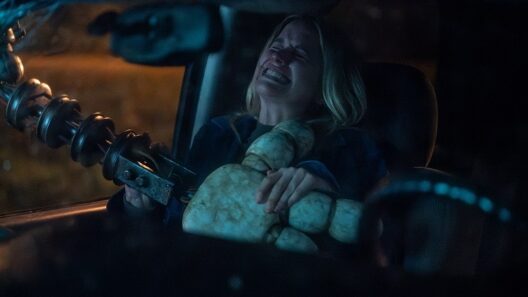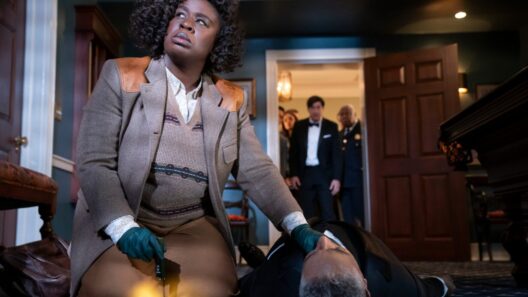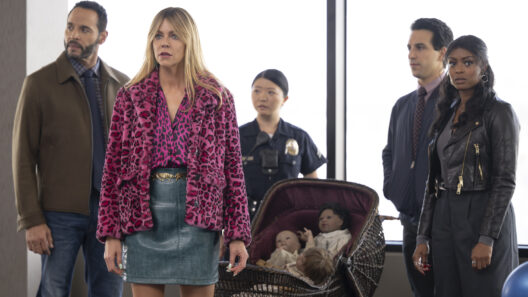Ever watched a detective so talented he’s unbearable—but you kinda want to hire him? That’s DCI Carl Morck, and Dept. Q is built around his razor-sharp unpredictability.
Dept. Q opens with Morck (Matthew Goode) being exiled to a dingy Edinburgh basement after a shooting bests him—and everybody who worked with him. What starts as a half-baked PR stunt—basically, a bureaucratic attempt to shove their least lovable detective where no one has to make eye contact—somehow becomes Morck’s twisted version of team-building.
To everyone’s surprise, he successfully assembles a murder-solving band of misfits and starts solving crimes like it’s a competitive sport—and everyone else is losing. Cleverly plotted, atmospheric, and led by Matthew Goode’s charcoal-edged sneer, this is gritty cop drama done right.
Meet Dept. Q: Basement Squad, Big Crime Energy
Morck is less “team player” and more “hostile work environment in a trench coat.” Naturally, they make him the face of a cold case division no one expects to succeed. What could possibly go wrong? Well, everything—and that’s exactly what makes it great.
The team isn’t plucked from a hero factory either. Akram (Alexej Manvelov) operates like the IT guy who might also be ex-special ops. Rose (Leah Byrne) looks like she’s one spreadsheet away from a nervous breakdown, but will verbally eviscerate you before lunch. And Hardy (Jamie Sives)? Paralyzed, pissed off, and sharper than everyone upstairs combined. Together, they’re the anti-CSI, and that’s the whole point.
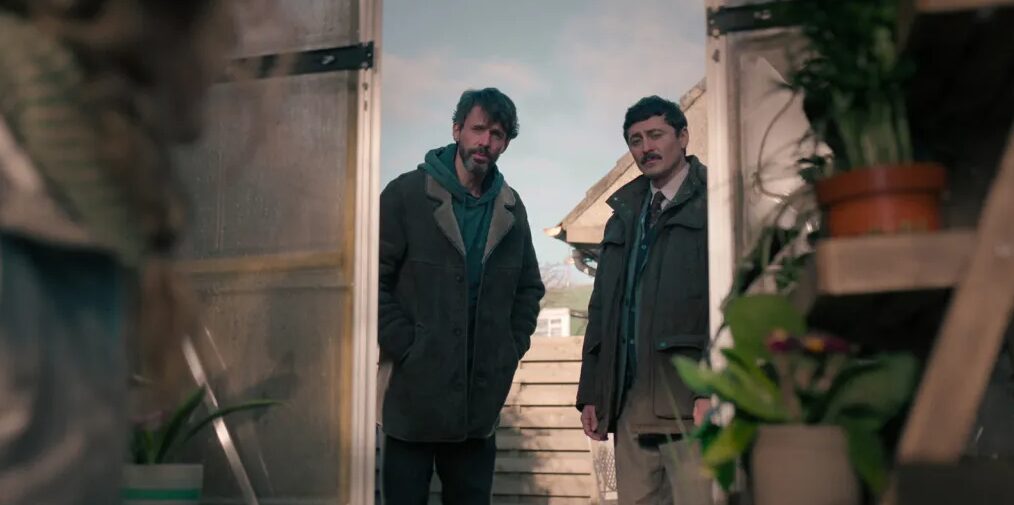
Performance Check: Goode is Mean, Moody, and Magnificent
Matthew Goode chews scenery like it’s bubblegum laced with arsenic. He plays Morck as a man who’d rather punch a perp than fill out a form, dripping with disdain for bureaucracy and basic human warmth. It shouldn’t work. But it does.
Goode’s delivery of sarcasm is so sharp it could exfoliate. But it’s not all growl and gloom—there are tiny moments of vulnerability that remind you this guy is barely stitched together. It’s those fractures that make him addictive to watch.
Plot That Smolders, Then Sizzles
The entire season one case in Dept. Q is a mini Russian doll: what starts as a missing person spirals into generational secrets, institutional rot, and shocking violence. The central mystery this season? The vanishing of civil servant Merritt Lingard (Chloe Pirrie). What looks like another bureaucratic dead-end suddenly unspools into a kidnapping tangled up in political coverups and a revenge plot that’s been aging like a bottle of vinegar in a locked cellar.
The red herrings? Expertly placed. The final twist? Worth the slow burn. Dept. Q doesn’t just reopen old wounds—it autopsies them, then sets them on fire.
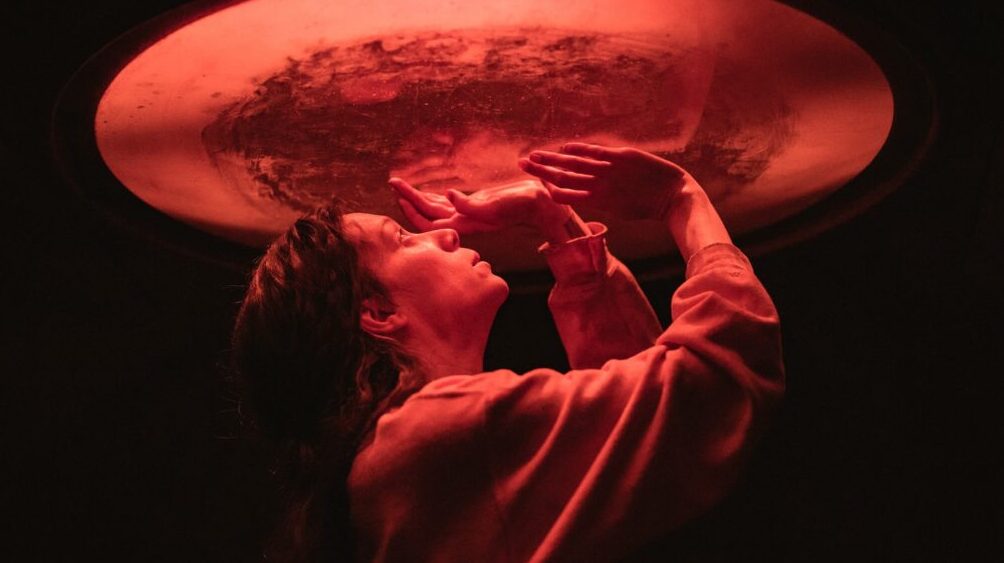
Aesthetic Vibes: Nordic Noir, Scottish Soul
Visually, the show is a masterclass in gloomcore. Foggy streets, shadow-drenched hallways, and a color palette pulled straight from depression’s Pinterest board. Edinburgh has never looked more ominously beautiful.
If you loved the chilly dread of The Bridge or Broadchurch, this will feel like home. Or at least, a home that may or may not be bugged by the intelligence services.
Is There a Catch?
Some critics ding the pacing—it’s not a sprint, it’s a smolder. And yes, Morck isn’t exactly built for cuddles. But for those who like their cop dramas bleak, brainy, and emotionally bruising? Dept. Q delivers.
Final Verdict
Dept. Q is what happens when a misanthropic genius gets banished to the basement and accidentally builds the most compelling crime-solving squad on TV. It’s a cocktail of trauma, snark, and slow-burn justice—and it goes down disturbingly smooth.
Netflix, you better greenlight Season 2! No hyperbaric pressure or anything….
I write like I think—fast, curious, and a little feral. I chase the weird, the witty, and the why-is-this-happening-now. From AI meltdowns to fashion glow-ups, if it makes you raise an eyebrow or rethink your algorithm, I’m probably writing about it. Expect sharp takes, occasional sarcasm, and zero tolerance for boring content.







